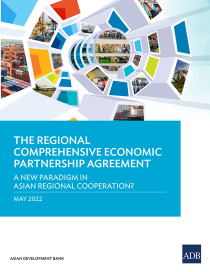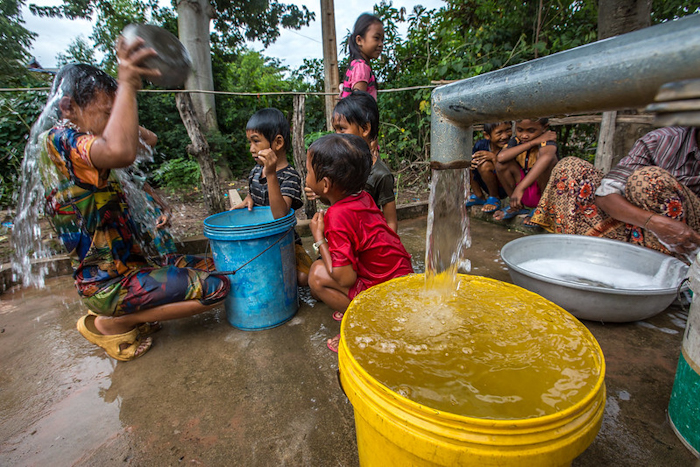
Asian Development Bank and Myanmar: Fact Sheet
ADB remains deeply concerned about recent developments in Myanmar and will continue to consult with shareholders and other stakeholders on any operations in the country.
The Greater Mekong Subregion is working to improve the quality of life and economic vibrancy of its cities and towns by using global best practices in urban development.
The Urban Development Working Group oversees urban development and economic zones as new areas of cooperation in the subregion.
By 2050, the Greater Mekong Subregion is expected to be at least 50% urbanized. This will bring vast changes to the economies of the subregion. What was once a primarily agricultural area is transforming into a place where cities and towns are the main drivers of economic growth. Careful planning is needed to balance urban growth with environmental protection and economic equity so that healthy cities can be enjoyed by all residents.
The Greater Mekong Subregion is working to improve the quality of life and economic vibrancy of its cities through the development of national strategies and projects that incorporate global best practices into the subregion’s urban development. This work has included the first and second Corridor Towns Development Project, which is developing competitive and environmentally friendly cities along vital economic arteries in the subregion. Cross-border economic zones are also being developed.
The COVID-19 pandemic inevitably will leave its mark on cities, physically and socially, echoing for generations to come. This is already evident in terms of urban life. The GMS Program will focus on these effects with measures to respond to current and future crises. The GMS Economic Cooperation Program Strategic Framework 2030 (GMS-2030) will encourage a holistic approach to the future planning of cities so that they are green, smart, competitive, resilient, safe, and inclusive. It will also promote linkages between cities to develop new urban clusters and maximize economies of agglomeration, develop cities in border areas, create linkages with special economic and industrial zones, and improve waste management and pollution in cities located close to GMS rivers and seas. GMS-2030 was endorsed and adopted at the 7th GMS Summit of Leaders in September 2021. It aims to provide a new setting for the development of this subregion for the next decade.
Related
• Urban Development in the Greater Mekong Subregion
• Greater Mekong Subregion Urban Development Strategic Framework
• Second Greater Mekong Subregion Corridor Towns Development Project
• Urban Development Working Group
Focal Persons at the Asian Development Bank
Alan Baird
Water and Urban Development Sector Office Sectors Group
Hinako Maruyama
Water and Urban Development Sector Office Sectors Group
Other Concerned Staff & Consultants
Antonio Ressano
Regional Cooperation and Integration Unit
Southeast Asia Department
Alma Canarejo
Regional Cooperation and Integration Unit
Southeast Asia Department/GMS Secretariat
Send inquiries to GMS Secretariat.

ADB remains deeply concerned about recent developments in Myanmar and will continue to consult with shareholders and other stakeholders on any operations in the country.

ADB is one of Cambodia's largest sources of official development assistance, with average annual lending of $329.8 million from 2016-2021. The bank's support is aligned with the Cambodia's National Strategic Development Plan 2019-2023.

This report compares the Regional Comprehensive Economic Partnership (RCEP) with other free trade agreements and suggests how policy makers can promote its successful implementation.

This report shows why Southeast Asian countries need to prioritize core sectors ranging from tourism to digital trade as they hammer out policies to boost post-COVID-19 recovery and secure a greener future.
The 5th Meeting of the Greater Mekong Subregion (GMS) Urban Development Working Group (UDWG) was held via web-based conferencing (Zoom) on 23 February 2022 with the Ministry of Public Works and Transport (MPWT) of the Government of Lao People's Democratic Republic (Lao PDR) as host.
The Asian Development Bank (ADB) launched the Southeast Asia Sustainable Tourism Hub on 17 March 2022 at the third Southeast Asia Development Symposium (SEADS).
Southeast Asia’s tourism industry is still reeling from the impact of the COVID-19 pandemic. To accelerate an inclusive and sustainable recovery, ADB is increasing its support for investments, capacity development, and knowledge.

Photo by Jacques Beaulieu/Flickr (CC BY-NC 2.0)
The Urban Management Platform of the Lao People’s Democratic Republic supported by the Japan International Cooperation Agency (JICA) aims to tackle urban development policies and issues in Vientiane, such as land administration, investment in urban development, and revision of the transport master plan. The first meeting reviewed current land management practices. Government officials and JICA specialists attended, reported the Vientiane Times on 18 February 2022.
The Viet Nam Industry 4.0 Summit 2021 highlighted the creation of a sustainable socioeconomic recovery and growth in Viet Nam in the post-COVID-19 era, and promoted industrialization and modernization in the digital age.
Mr. Andrew Jeffries, Country Director for ADB Viet Nam Resident Mission, joined the plenary discussion on post-pandemic economic recovery and digital transformation as a new vehicle for green recovery on 5 December 2021.
The Asian Development Bank (ADB) and the United Nations Industrial Development Organization (UNIDO), in collaboration with the Ministry of Industry, Science, Technology and Innovation and the Ministry of Economic and Finance of the Government of Cambodia, held a virtual discussion on the status of Cambodia’s fourth industrial revolution (4IR) and pathways for the country’s transformation to this new industrial model by 2030 on 7-8 December 2021.

Second Rural Water Supply and Sanitation Sector Project in Cambodia. Photo by ADB
The Asian Development Bank (ADB) has approved a $180 million loan to help three cities in Cambodia improve urban infrastructure and boost economic competitiveness.
The Livable Cities Investment Project will help more than 140,000 residents in Bavet, Kampot, and Poipet access better wastewater and solid waste management services. It will help the cities reduce flooding by upgrading their urban stormwater and drainage systems. The project also aims to strengthen the capacity of municipal governments to deliver urban services.